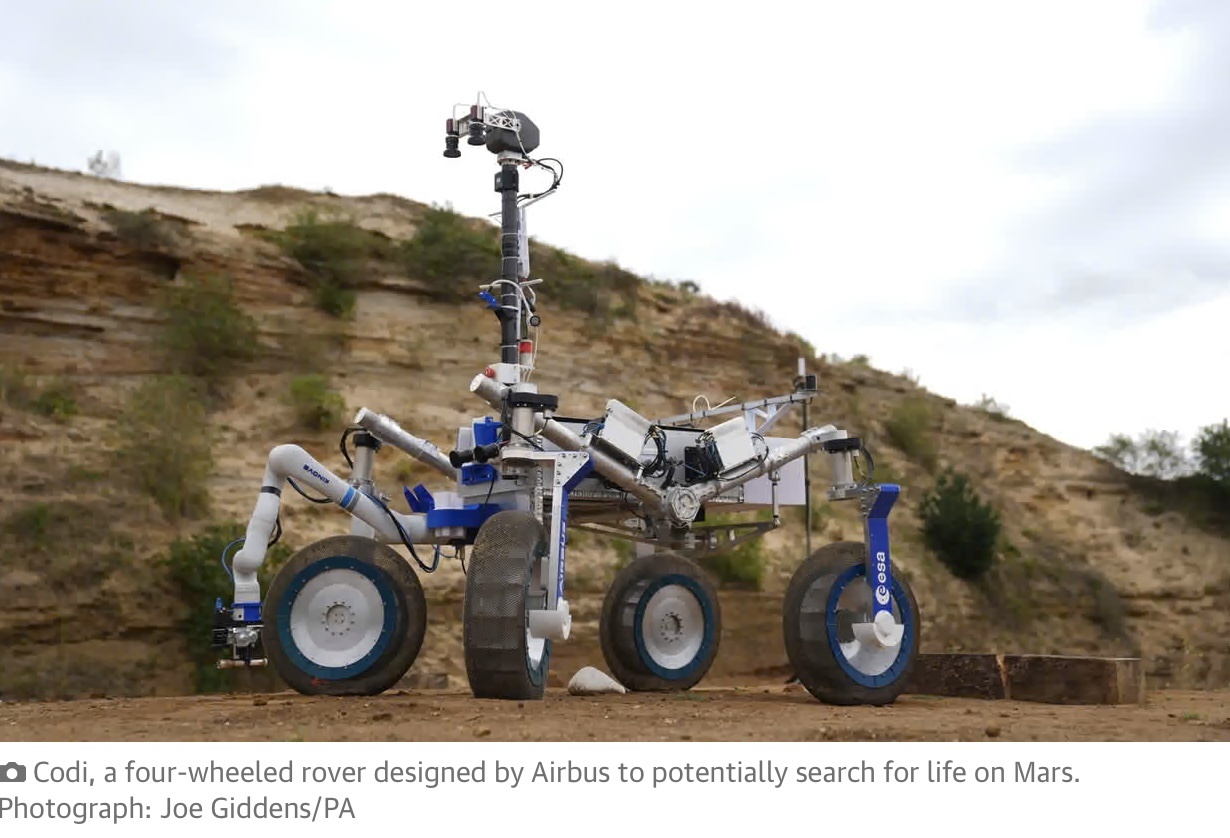6.09.2024
Fitted with robotic arms and navigation cameras, the rovers are being developed for mooted missions to the moon and Mars

Two space rover prototypes that could be used to help search for life on Mars are being trialled at a quarry in Bedfordshire. The robots are being put through their paces by the European aerospace giant Airbus, which is considering using the technology to aid missions to the moon.
A four-wheeled rover, named Codi, features navigation cameras and a robotic arm that it can use to collect rocks sealed in small tubes without the need of a human operator.
Charlie, a six-wheeled robot, has a “rocker bogie” suspension and can navigate obstacles twice the diameter of the wheel without getting stuck or falling on its side.
Chris Draper, rover programme manager at Airbus, said: “The thing we are excited about the most at the moment is the moon. The moon is a stepping stone to Mars, so there is obviously a lot of interest in going back to the moon and you can envisage rovers being part of the lunar ecosystem.
“Rovers can really support transporting things around at the base and support astronauts in their day-to-day activities. And then, once we can prove we can do that on the moon, we [will] want to do the same on Mars.”
Codi, based on another European Mars rover called the Sample Fetch Rover, which was built by Airbus in Stevenage, is able to drive to and retrieve samples with an accuracy of around 10cm.
Meanwhile, Charlie is testing a new navigation system developed for the European Space Agency’s flagship Mars mission, known as the ExoMars Rosalind Franklin rover, which is expected to launch in 2028.
Pantelis Poulakis, Esa’s Mars sample return project team leader, said: “When you are doing robotic missions that interact with the environment of another planet, being able to do field trials and testing is a very important part of the development.
“Nasa has a culture of testing, so even when they do not have a mission, they have an annual field-testing campaign with robotics, because this creates competence.”
Quelle: The Guardian

